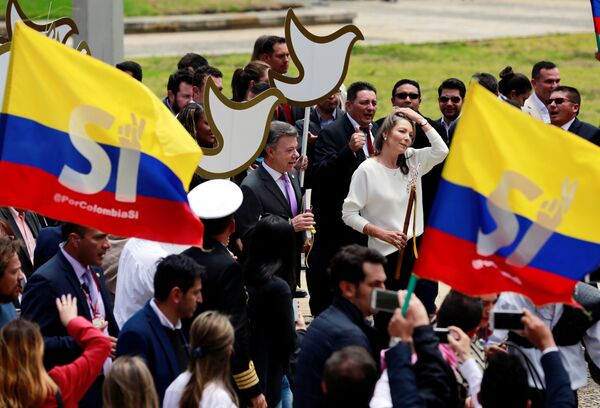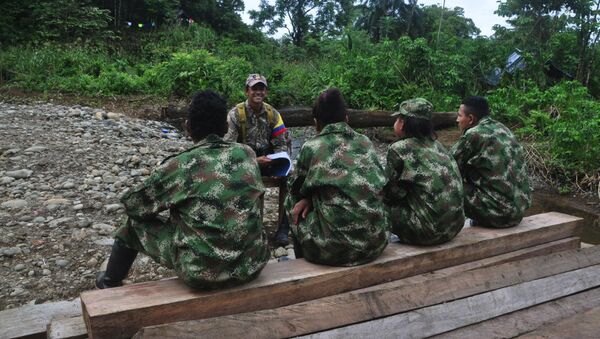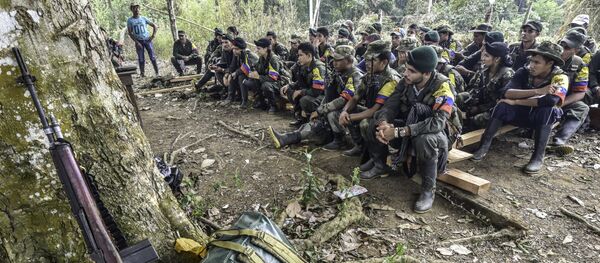On November 12, the Colombian government and the Revolutionary Armed Forces of Colombia (Spanish acronym FARC) rebel group signed a new peace deal, thus seeking to salvage an earlier agreement which was rejected in a nation-wide referendum last month. The new deal is the latest iteration of a peace plan initially proposed this summer, when the government and FARC announced a comprehensive peace plan to try and end the decades-long conflict estimated to have killed nearly 220,000 people over a 60 year period.
Last month, Colombian voters rejected the original agreement, which included provisions on landmine removal, land reform, transitional justice, the end of illegal drug trafficking. Nevertheless, Nobel Peace Prize winner Juan Manuel Santos vowed that he would continue negotiations to reach a lasting peace.
Speaking to Sputnik Mundo, Camilo Gonzalez, a former senior official in the Colombian government and president of the INDEPAZ Institute, explained that he has high hopes that the new version of the agreement will find the necessary support among the opposition. At the same time, he added, a lasting agreement will require the support of opposition leader and former President Alvaro Uribe.
The political economist stressed that the new agreement should find broad support, because an effort has been made to incorporate those forces that rejected the original agreement, reached September 26 and brought down in a referendum October 2. "This gives us more chances for a transition in Colombia," the expert noted.
Now, the fate of the agreement is in the hands of the opposition. Opposition leader and former President Uribe had demanded that the new agreement not be finalized until the opposition is given a chance to review it.
"Uribe has asked that the agreement not be made final, because he wants the people who voted 'against' [the first agreement] to take a look at it," Gonzalez noted. "The new agreement includes more than 70% of the points that they demanded, and over 90% of the fundamental points."

In this situation, the expert suggested that "it would be outrageous [of Uribe] to use the veto, but anything can be expected of him." The former Colombian president has earlier voiced his categorical opposition to FARC remaining a political force. For his part, Gonzalez suggested that "this distorts the meaning of the term 'negotiation'."
"This is the plan, but there are some doubts about whether the Congress will approve the agreement, or whether some demonstration of the people's will be required. For now, two elements are in limbo: the last word given by Uribe and the provision of legal validity to the agreement," Gonzalez concluded.






